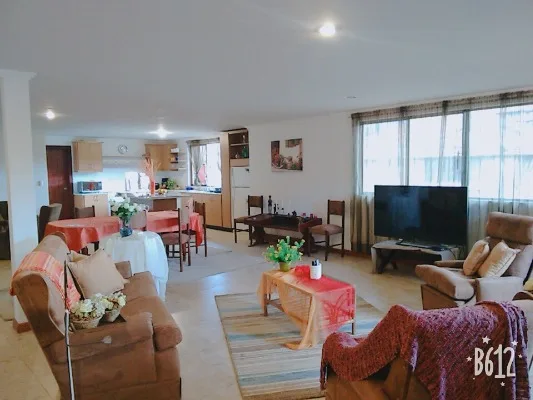Indigenous Shuar leader found murdered in the jungle; could his death be linked to opposition to a Chinese mining operation?
By Jonathan Watts
Ecuador plans to drill for oil in the Yasuni Amazon reserve, as president Rafael Correa seeks to exploit his country’s resources, in part to pay off debts owed to China.
The body of an indigenous leader who was opposed to a major mining project in Ecuador has been found bound and buried, days before he planned to take his campaign to climate talks in Lima.
The killing highlights the violence and harassment facing environmental activists in Ecuador, following the confiscation earlier this week of a bus carrying climate campaigners who planned to denounce president Rafael Correa at the United Nations conference.
The victim, José Isidro Tendetza Antún, a former vice-president of the Shuar Federation of Zamora, had been missing since 28 November, when he was last seen on his way to a meeting of protesters against the Mirador copper and gold mine. After a tip-off on Tuesday, his son Jorge unearthed the body from a grave marked “no name”. The arms and legs were trussed by a blue rope.
Other members of the community said Tendetza had been offered bribes and had his crops burned in an attempt to remove him from the area.
Domingo Ankuash, a Shuar leader, said there were signs Tendetza had been tortured, but the full facts had yet to come to light. He said the family were extremely unhappy with the investigation and what they said was the reluctance of the authorities to conduct a timely autopsy.
“His body was beaten, bones were broken,” said Ankuash. “He had been tortured and he was thrown in the river. The mere fact that they buried him before telling us, the family, is suspicious.”
Tendetza had been a prominent critic of Mirador, an open-cast pit that has been approved in an area of important biodiversity that is also home to the Shuar, Ecuador’s second-biggest indigenous group.
The project is operated by Ecuacorriente – originally a Canadian-owned firm that was brought by a Chinese conglomerate, CCRC-Tongguan Investment, in 2010. According to the Confederation of Indigenous Nationalities of Ecuador, the project will devastate around 450,000 acres of forest.
“This is a camouflaged crime,” said Ankuash. “In Ecuador, multinational companies are invited by the government and get full state security from the police and the army. The army and police don’t provide protection for the people, they don’t defend the Shuar people. They’ve been bought by the company.
“The authorities are complicit in this crime,” Ankuash claimed. “They will never tell us the truth.” He added: “[Tendetza] was not just anyone. He was a powerful leader against the company. That’s why they knocked down his house and burnt his farm.
“The government will never give us a response, justice belongs to them. They will call us terrorists but that doesn’t mean we are not going to shut up.”
Several other Shuar opponents of Mirador have died as a result of the conflict in recent years, including Bosco Wisum in 2009 and Freddy Taish in 2013, according to Amazon Watch.
An initial autopsy said the circumstances of Tendetza’s death were unclear. Harold Burbano, of the human rights organisation INREDH, said there was a suspicion that the killing was related to his work as a land defender.
“There has been a rise of conflicts since the transnational mining company entered the area, significantly increasing the risks faced by community leaders,” he said.
Tendetza had planned to condemn the project at a Rights of Nature Tribunal organised by NGOs at the climate talks which are taking place this week in the Peruvian capital.
Luis Corral, an advisor to Ecuador’s Assembly of the People of the South, an umbrella group for indigenous federations in southern Ecuador, said that if Tendetza had been able to travel to the COP20 it would have put in “grave doubt the honorability and the image of the Ecuadorean government as a guarantor of the rights of nature”.
“We believe that this murder is part of a pattern of escalating violence against indigenous leaders which responds to the Ecuadorean government and the companies’ need to clear the opposition to a mega-mining project in the Cordillera del Condor,” he said.
“The state through the police and the judiciary is involved in hiding this violent crime because of the elemental irregularities in the proceedings. The body was buried without informing the family. They weren’t allowed to see the second autopsy.”
Tendetza’s killing highlights the risks facing environmental activists in Ecuador. Earlier this week, a group of campaigners travelling in a “climate caravan” were stopped six times by police on their way to Lima and eventually had their bus confiscated.
The activists said they were held back because president Correa wants to avoid potentially embarrassing protests at the climate conference over his plan to drill for oil in Yasuni, an Amazon reserve and one of the most biodiverse places on earth.
Once lauded for being the first nation to draw up a “green constitution”, enshrining the rights of nature, Ecuador’s environmental reputation has nosedived in recent years as Correa has put more emphasis on exploitation of oil, gas and minerals, partly to pay off debts owed to China.
Credit: The Guardian, www.theguardian.com






















